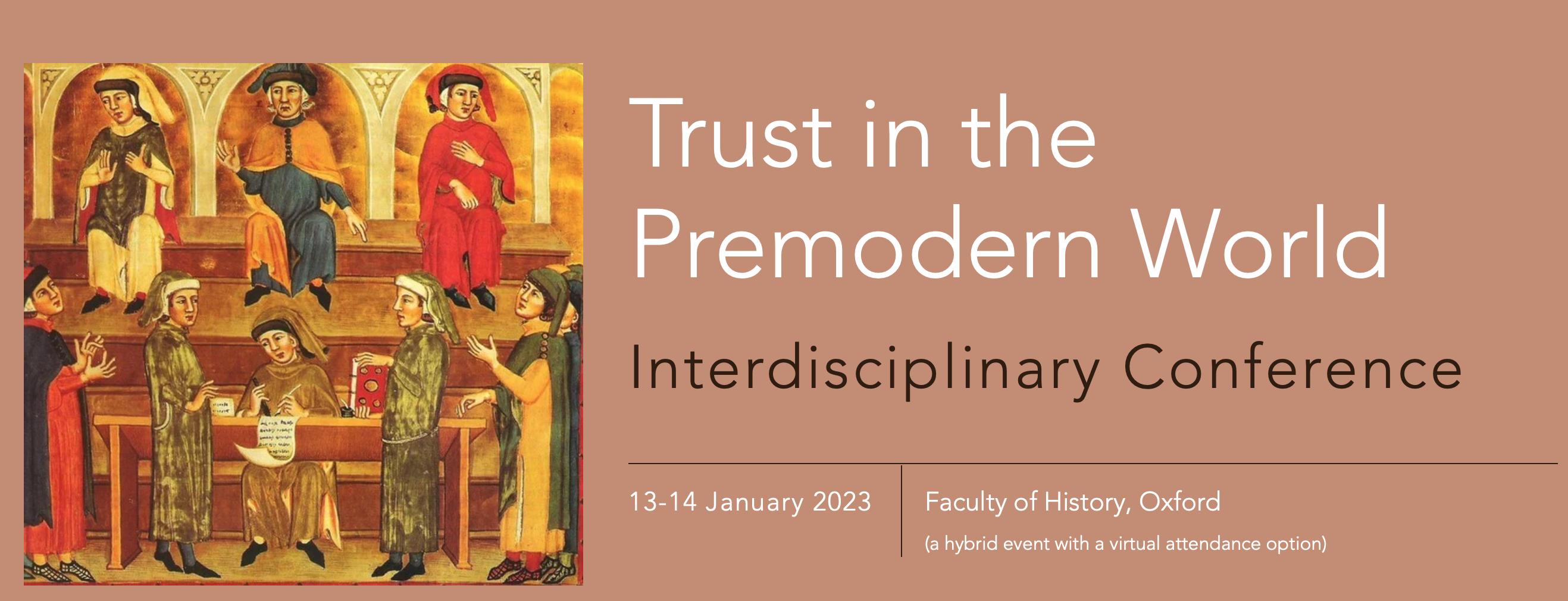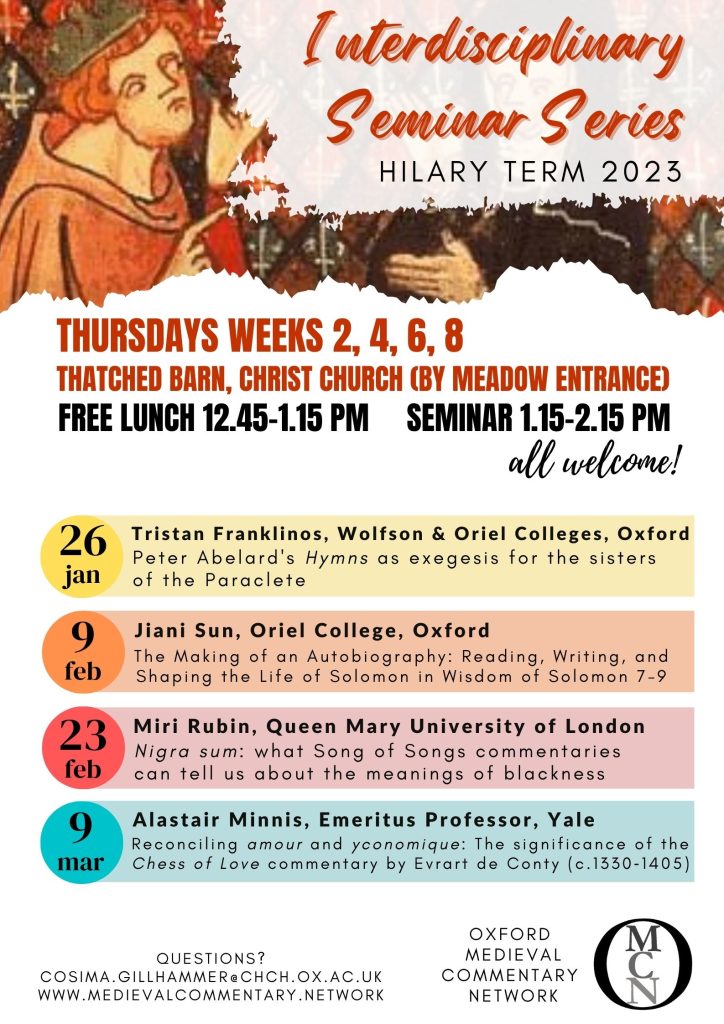Tuesdays. Meeting from 5pm; papers begin at 5.15pm
Tuesdays, Charles Wellbeloved Room, Harris Manchester College
Tea & coffee from 5pm; papers begin at 5.15pm
Everyone is welcome at this informal and friendly graduate seminar
Week 1 Medieval Church and Culture Social
17 January Come along for tea, coffee, and biscuits in the Charles Wellbeloved Room from 5pm-6pm. A chance to share ongoing research, catch up informally, and give suggestions for themes and speakers in coming terms. All are welcome.
Week 2 David d’Avray (UCL)
24 January The medieval legacy (to 1234) of the first decretal age (c. 400)
Week 3 Susannah Bain (Jesus)
31 January Maps, Chronicles and Treaties: defining political connections in late-thirteenth-century northern Italy
Week 4 Mary Hitchman (Wolfson)
7 February Martyred Mothers: Augustine’s sermons on Perpetua and Felicitas
Week 5 Federica Gigante (History of Science Museum)
14 February Islamic spoils in a Christian context: the reuse of Islamic textiles in Medieval Italian churches
Week 6 Laura Light (Les Enluminures)
21 February The Paris Bible: what is it, and why its name matters
Week 7 Bee Jones (Jesus)
28 February Bernard’s ‘barbarians’: the Irish in the Life of Malachy
Week 8 Henrietta Leyser (St Peter’s) and Samuel Fanous (Bodleian Library)
7 March The Vision of the Monk of Eynsham
Convenors:Lucia Akard (Oxford SU); Sumner Braund (St John’s), Bee Jones (Jesus), Lesley Smith (HMC)
Programme Trinity Term 2021
Everyone is welcome at this informal and friendly graduate seminar. This Trinity Term, as always, MCC will feature presentations from the 2020-21 Medieval Studies MSt cohort on their upcoming dissertations. on teams (click on this link to join)
Convenors: Sumner Braund (St John’s), Amy Ebrey (St John’s), IanMcDole (Keble), Lesley Smith (HMC)
Week 2 (4 May): Pilar Bertuzzi Rivett (Lincoln): Ten Names, One God: Exploring Christian-Kabbalistic affinity in a Christian hymn of the twelfth century
Samuel Heywood (St Peter’s): The Finnish Product: translation and transmission of Luther’s hymns in Finland and Sweden
Week 3 (11 May): Jennifer Coulton (Wolfson): Tongue-tied and Legal Loopholes: binding motifs in Early Medieval England
Florence Eccleston (Jesus): The Emotional and Embodied Experience of the Seven Deadly Sins, c.1350-c.1500
Week 4 (18 May): James Tomlinson (Magdalen): The Relationship between Music and Architecture in Late Medieval Creativity: structure, allegory, and memory
Irina Boeru (Wadham): At the frontier of the known world: cartographic and heraldic encounters inLibro del Conosçimiento de todos los Rregons et Tierras et Señorios que son por el mundo, et de las señales et armas que han
Week 5 (25 May): Arielle Jasiewicz-Gill (Oriel): Lay Devotion and Performative Identity in the Fifteenth Century
Florence Swan (Wolfson): The devel of helle sette his foot therin! A literary historical analysis of the cook in late medieval England
Week 6 (1 June): Thomas Henderson(Linacre): Twelfth-Century Mathematical Thinking: an anonymous fractions treatise, Oxford, Bodleian Library, MS Auct. F.1.9











